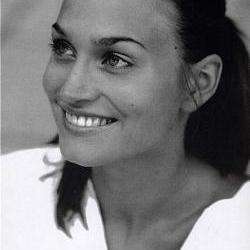Powerful singing, beautiful music and throngs of gorgeous people, almost none of whom do much rolling around in mud! If you are going to see Verdi’s I due Foscari, this co-production between the Theater and der Wien, Los Angeles Opera, Palau de les Arts Reina Sofia and the Royal Opera House, directed by Thaddeus Strassberger is likely the way to do it. Although it is by no means unflawed there are several reasons that it is a must-see for opera fans here in Vienna.
The largest reason is Plácido Domingo. Dramatically, vocally and musically he is an energetic force of nature. In this, his fourth production at the Theater an der Wien, he is completely compelling in his portrayal of the aging Doge of Venice, Francisco Foscari, caught between compassion for his suffering family and the corrupt Council of Ten who want to bring him to his knees. I’ll spare readers the obligatory superlatives when talking about Domingo, but basically I’m fairly certain that if he chose he could walk onto stage in a tutu and sing an aria to a sack of manure for an hour and we’d all buy tickets. I mean, we’d complain about the smell, but still feel like it was an evening well-spent.
The rest of the cast is also strong. Jacopo Foscari, the Doge’s exiled son, was played by tenor Arturo Chacón-Cruz, who handled the challenges of the role with ease. Although his timbre lacked a certain polish, it is a healthy, well-trained instrument in the body of a beautiful man. Equally interesting (and breathtakingly gorgeous) is soprano Davinia Rodríguez, who played Lucrezia Contarini, Jacopo’s wife. I spent half of the evening trying to figure out her voice. She possesses gorgeous tones and cuts through the hall in every register without issue, but on closed vowels – especially in the lower registers – it often sounds like she is singing through a long, resonant pipe or into a huge barrel. Love it or hate it, it is a memorable instrument and she gave a striking performance of a very difficult role. Last but certainly not least, bass Roberto Tagliavini, as the vengeful Jacopo Loredano, had far too little to sing in this production. A powerful, warm, well-modulated, well-placed bass voice like his is a rare and beautiful thing, and we would be wise to find him some more work in this city and soon.
In terms of the work, this early Verdi opera has been largely forgotten, having enjoyed only sporadic revivals since its positive critical reception in 1844. It has, however, been enjoying a bit of a renaissance over the past few years, and is musically worth a listen. Though by no means on par with his mature masterpieces, it is absolutely recognizable as Verdi and there are a surprising number of gripping and effective musical moments. The ORF Radio-Symphonieorchester were in excellent form under the baton of James Conlon, playing with the control and ensemble of a chamber orchestra and supporting the vocalists completely without getting in their way dynamically.
Unfortunately, that’s where the good news ends.
The stage design is underwhelming at best. The action takes place exclusively against the backdrop of a broken-down stone city wall. One must assume this is meant to be allegorical, as Venice after Foscari’s 34-year reign was to have grown considerably in prosperity, not to have fallen to pieces. This incongruity was made all the more jarring by its conflict with the opulent costumes. The Council of Ten are clad in rich red, nuns waft about in white, and Lucrezia and her maidservants don bright green, blue and purple robes and jewels; all of which felt like visual assault against the dour backdrop.
The biggest issue was however the static quality of the staging and design when coupled with the lack of action inherent in the work. This inertia is certainly the biggest issue Foscari will have in finding resonance with audiences today. It combines a complete lack of plot interest with a weak libretto. As soon as the curtain opens on this opera, all the actual drama is past. Fate takes its course and loss and death follow, but there is no surprise and absolutely no humor. It is a painful story of a father long in a position of great power who is utterly helpless to protect his innocent son. Both die of broken hearts, stripped of family, power and hope. And for whatever unfathomable reason, the inherent tragedy of the story was not enough for the directorial team. On top of the relentless, fatalistic grief and loss within the tale, this production opted to have Lucrezia go mad, bathe in mud, then violently drown her child in the final scene. Sigh.


